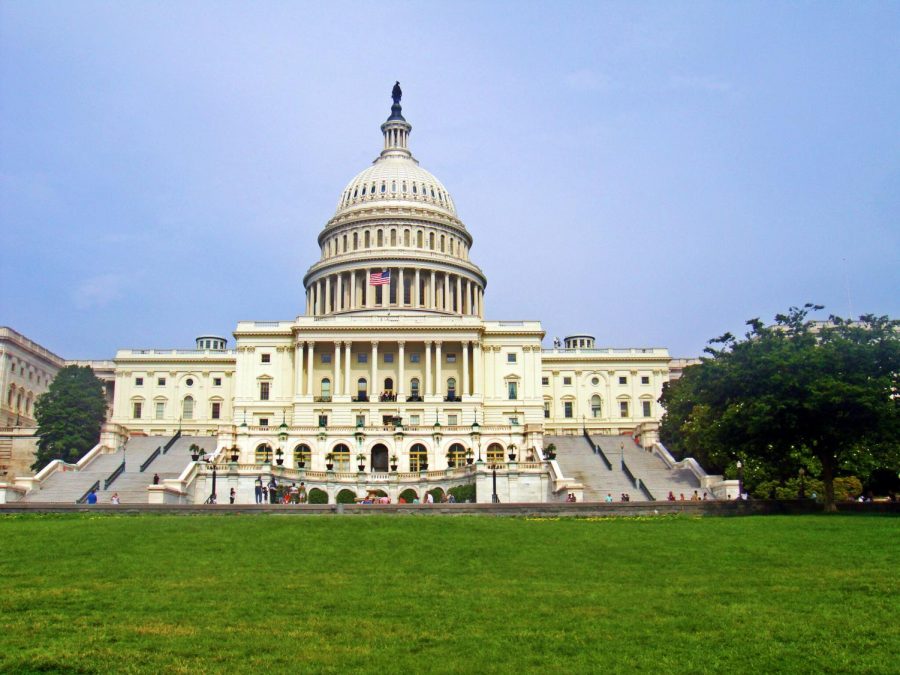One of the more shocking things seen from the violence in the United States Capitol on Jan. 6 was the disturbing mixture of Christian and white nationalist symbols. How is it that people holding up “Jesus Saves” signs could stand together with Proud Boys and white supremacists? Wasn’t the core of Jesus’s message non-violence and love?
Unfortunately, this fusion of Christianity and white nationalism is neither new nor surprising. In fact, the events of Jan. 6 should be viewed more as a culmination of trends that have been building for some time now. For decades, Republicans have been using Christian values to create a political narrative that better serves their ideological interests. The end goal for many of them is to establish the United States as a firmly Christian nation and impose their moral beliefs on the rest of society. This view is antithetical to our ideas of pluralistic democracy and it threatens to ruin our system of government.
Christian nationalism — the belief that the United States is fundamentally a Christian nation — has roots deep within our history. Christian nationalists argue that the United States was founded upon Christian values and that the nation’s successes are determined by its piety and obedience to God. This account, however, is a fantasy. In fact, historian Jill Lepore has observed that before the Second Great Awakening (1795-1835), only about one in ten Americans belonged to a church. The Constitution was written during the “most secular era in American history.” The Founders also emphasized the importance of separating church and state. They had in mind events like the Thirty Years’ War, a bloody conflict between Catholics and Protestants in the Holy Roman Empire. To avoid such catastrophe, the Founders placed the establishment clause and free exercise clause in the First Amendment alongside the rights to free speech and a free press.
The United States was not a Christian nation at its inception, but a radically secular one.
However, the number of people who belonged to a church soared to eight in 10 after the Second Great Awakening. As a result, appeals to Christian values became a potent drive towards reform. Notably, Christian values played a fundamental role in many calls for abolition following the Second Great Awakening. As a result, people began to implicitly associate American democracy with Christian values.
What this illustrates is that neither Christianity nor religion in general are inherently negative forces in American politics. Reliance on Christian values has actually advanced the cause of American democracy in cases like the abolition movement. The issue is when religion is used as an excuse to bolster the social standing of one group at the expense of others. As the political scientist Benjamin Lynerd writes, “[The difference is] between searching out the implications of the Christian gospel for politics and leveraging this gospel to advance the social position of American Christians.” It is when religion is leveraged in this way that it becomes incompatible with the values of pluralistic democracy.
Emphasis on Christian values became an essential part of the Republican platform after Richard Nixon’s Southern Strategy. Republicans decided to appeal more to white identity, Christianity, and business interests to bring Southern Democrats into the Republican Party. This solidified the Democratic Party as the party of social reform and progress while the Republican Party established itself as the party of traditional values. The parties, thus, were more ideologically aligned than before. Conservative Democrats and liberal Republicans became increasingly rare. Overtime, other aspects of personal identity began to align with party such as religion and race. Political scientists have identified this sorting as a primary cause of the polarized nature of our politics.
Over time, issues such as abortion and LGBTQ+ rights have increased the divide between Democrats and Republicans. Republicans have viewed these issues as assaults on human dignity and traditional values. Democrats, in contrast, have maintained that people have the right to make these decisions for themselves. These disagreements have reinforced the view amongst religious Republicans that Democrats are opposed to Christian values.
These tensions culminated in the violence of Jan. 6. Christian nationalism was not the sole motivation of the rioters, however. White identity also played a crucial role. Though this association between white identity and Christian nationalism often operates “far below the level of consciousness,” narratives of white supremacy and Christian nationalism align quite well. As the religion scholar Ann Burlein has argued, “Both the Christian right and right-wing white supremacist groups aspire to overcome a culture they perceive as hostile to the white middle class, families, and heterosexuality.” The perception that Christian values are under attack in a changing culture mirrors the belief that white identity is under attack in the face of growing diversity. The topic of white nationalism cannot be fully covered here, but it is important to recognize how it can overlap with narratives of Christian nationalism.
The aims of this movement are clearly incompatible with our system of government. Senators like Missouri’s Josh Hawley have made explicit their contempt for pluralism and their desire to increase Christianity’s sway in policy. While it is not the only important issue, combatting this illiberal movement should be a top priority. Blurring the line between church and state does nothing but corrupt them both.
Benjamin Schnurr is a Collegian columnist and can be reached at [email protected].




















HarrietEdmonds • Mar 24, 2021 at 3:52 pm
We need to stand up to this unholy administration and hopefully topple Joe Biden ASAP he’s totally inept!